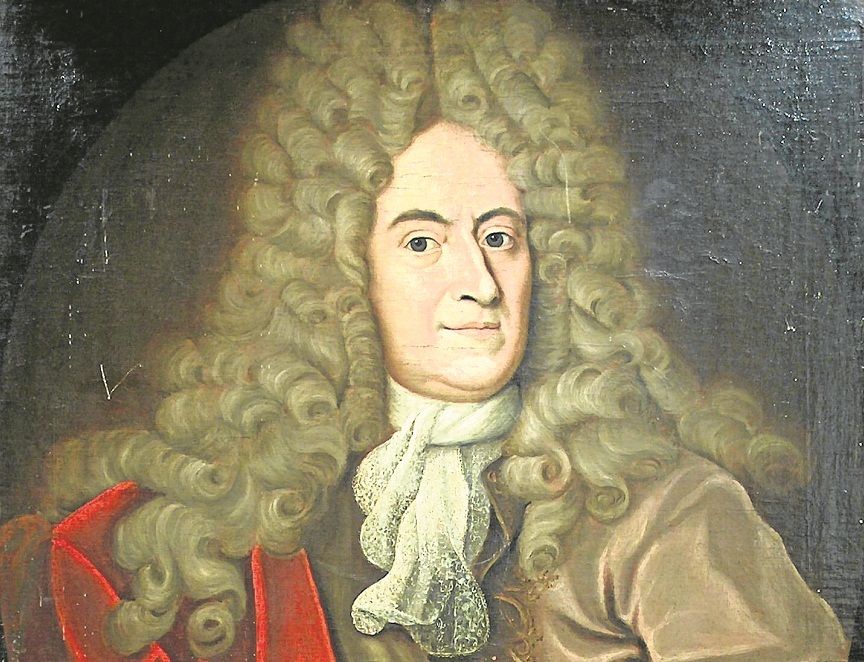Asked to name the 17th century’s most important scientist, most people would reply Isaac Newton, maybe a few Robert Hook, and even fewer, Denmark’s very own Tycho Brahe, who died in 1601. However, this country has another claimant worthy of consideration: Ole Rømer, whose ground-breaking discovery – that light travels at a finite and measurable speed – took astrophysics to a new level.
Rømer was born in 1644 in Aarhus, the son of Christen Pedersen, a merchant, and Anna Olufsdatter Storm, the daughter of an alderman. His father adopted the name Rømer, after the island of Rømø on which he was born, to distinguish himself from two other men of the same name. There is little information on Rømer’s early life, and after completing his schooling at Aarhus Cathedral School he enrolled at the University of Copenhagen in 1662.
While at university, he fell under the wings of Rasmus Bartholin, the scientist assigned with preparing Brahe’s astronomical records for publication (Rømer went on to marry his daughter in 1681). Under his tutorship, Rømer learnt mathematics and astronomy, although his heart remained in astrophysics. As part of their research into Brahe, the pair joined French astronomer Jean Picard on a mission to find Brahe’s lost Uranienborg observatory on Hven in 1671, which would help to interpret Brahe’s observations more accurately.
 Echoes of Versailles
Echoes of Versailles
His meeting with Picard led to him spending nine years (1672-1781) of his life in Paris, principally working at the Royal Observatory, where he was in charge of observations. Given his standing, it was no surprise when he was appointed by King Louis XIV of France to teach the dauphin, and through his royal connections, he became a member of l’Academie Royale des Sciences and was involved in the construction of the splendid fountains at Versailles and Chateau de Marly.
While in Paris, Rømer invented various astronomical instruments, including a micrometer and a star chart analogue, the planisphere. According to one of his biographers, Bernard Cohen, Rømer’s planisphere “was so superior to any designed previously, that it was speedily adopted for general use”. But, of course, it was his discovery of the speed of light in 1676, based on the exact times that astronomers in different parts of Europe sighted the same occurrence, that was his most notable French endeavour – to this day some people celebrate it as a French triumph, not a Danish one.
The speed of light had baffled scholars all over the world for thousands of years, and the scientific community was not quick to embrace Rømer’s findings – Italian-French astronomer Giovanni Cassini was especially critical, while Christian Huygens and Newton welcomed and adopted them – and it was a full 20 years until they were fully accepted.
Running for office
In 1681, Rømer returned to Denmark to take an astronomy professorship at the university and to become royal astronomer – a role that enabled him to take an active role in the establishment. He was responsible for several civic infrastructural projects, including the paving of the streets and city squares, improving the city’s water supply and sewers, and upgrading the city’s fire department. He took over the office of mayor and became the deputy chief of Copenhagen Police in 1705, a position he held to his death. He was responsible for erecting the first street lights (lit by oil lamps) and worked enthusiastically towards introducing various social reforms aimed at controlling beggars, preventing prostitution and reducing unemployment and poverty.
And despite all these duties, Rømer continued inventing. His temperature scale, one of the world’s first, acted as a huge inspiration to a visiting German physicist in 1708, a certain Daniel Fahrenheit; in 1683, he introduced the first national standard weights and measures system; he convinced the king to adopt the Gregorian calendar in Denmark in 1700; and he invented and upgraded numerous astronomical instruments, that he used at the university observatory at the Round Tower, including the Meridian circle, the Altazimuth and the Passage Instrument.
Work burned
He also defined the Danish mile, which was set at 24,000 feet (7,532 m), corresponding to four geographic arc minutes – a calculation he made during a survey of his country’s roads, which led to Denmark’s first stone milestones, some of which are still around and often referred to as ‘Ole Rømer stones’. And at the time of his death in 1710, he was working on proving that the Earth revolves around the Sun by demonstrating the fixed stars’ parallax – a theory that would have to wait a further one and half centuries before being proved.
Unfortunately, most of his observations, astronomical instruments and much of his accumulated works were destroyed in the great Copenhagen fire of 1728. ‘Triduum’ is one of the few surviving works of Rømer from that disaster.
But he is far from forgotten. In 1943 the Post and Telegraph service issued a postal stamp to commemorate the tricentenary of his birth. Denmark’s National Bank issued a 50 kroner banknote with his portrait in 1957, which remained in circulation until 1975. And today the Ole Rømer Museum is located in Høje-Taastrup Council near the ruins of Rømer’s observatory at Vridsløsemagle, which was in operation until 1716.












